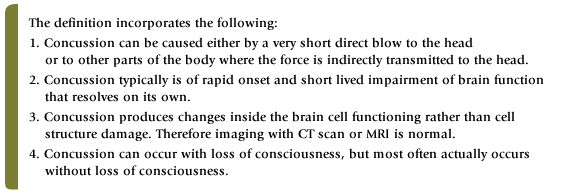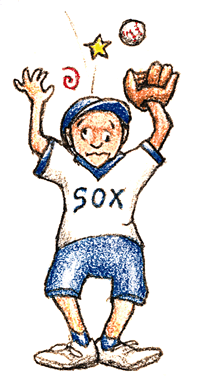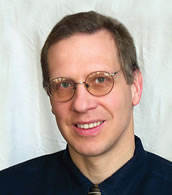Concussions
Scientific Understanding of the Processes Involved
Jon P. Konzen, DO
Neurology
Chippewa Valley Neurosciences, LLC
Eau Claire
The topic of brain concussion has been present for a long time. However in recent years there has been a beginning of scientific understanding of the processes involved. The current definition of concussion is a complex biomechanical process affecting the brain induced by either a direct or indirect force to the head.

While the popular press has brought attention to concussion from the perspective of sports injury, such as recently seen in the NFL, the most common cause for a concussion on a yearly basis is car accidents. Concussion, therefore, in day-to-day life is quite common. In 2005 it is estimated 1.4 – 3.8 million emergency room visits were the result of concussion. But these estimates may actually be less than actual occurrence of concussion, as many head “bumps” do not result in an emergency room visit.
Age is an important risk factor for concussion. Concussion usually occurs in very young people and very old people. This in part explains the increased interest in concussion development in the student athlete. Sometimes the recognition of the “concussed” individual can be tricky. Most concussions do not involve a loss of consciousness or have related external head injuries like bruising or the so called “goose egg.”. But the typical force necessary is substantial at 100 times the force of gravity to produce a concussion. In real world terms this is the equivalent of having a car run into a brick wall at 25 mph and striking one’s head against the dashboard. But, the actual time of an impact necessary to produce a concussion is only a fraction of a second. Therefore, to the casual observer, a concussion could easily be missed.
 By far the most common complaint after a concussion is headache. Almost 75% of people with concussion will report this. However, other not so recognized symptoms may frequently occur. This includes feeling run down or fatigue, difficulty concentrating, feeling dizzy or foggy, complaints of poor memory, feeling off balance, blurring of vision and being sensitive to light or sound.
By far the most common complaint after a concussion is headache. Almost 75% of people with concussion will report this. However, other not so recognized symptoms may frequently occur. This includes feeling run down or fatigue, difficulty concentrating, feeling dizzy or foggy, complaints of poor memory, feeling off balance, blurring of vision and being sensitive to light or sound.
As people who have a history of headaches might note, a lot of the same symptoms occur in conditions such as migraine headache. Therefore, the presence of a concussion might just be passed off as a person having a breakthrough headache. While complex chemical changes are occurring in the brain within seconds to minutes of a concussion, these changes cannot be seen on conventional CT scans or MRI scans, and thus routinely obtaining these studies is not helpful. Again, even to trained physicians, there are usually no physical exam findings of concussion.
The most useful way in trying to determine if a person has had a concussion, or monitoring of a person that has had a concussion, often involves special testing called neuropsychological examination. Earlier, this had to be accomplished with pen and paper testing.
This often was very time consuming and the cost prohibitive. Further, the specialists trained in this particular testing are few. Today, with the specific development of parts of this type of testing and with the aid of computers, screening tests are now available. However, in difficult cases, obtaining a full neuropsychological evaluation may still be necessary.
Over 90% of concussions will resolve on their own without any specific intervention within 10 days of the event. However, this recovery can be uneven. This means some people will feel better quickly, but then may worsen before actual full recovery. A small percentage of people may not recover or may have incomplete recovery. This is called a post concussion syndrome.
The best current recommendations for concussion recovery involve early recognition of a concussion event followed by rest. In athletes, this may mean removal from practice, play, and competition. Additionally, it may require time off from school and work. To date, although a number of trials have been attempted, there is no specific medication to treat concussion. However, medications may be utilized to help with some of the symptoms of concussion.
Dr. Konzen – Chippewa Valley Neurosciences, LLC
For information or to schedule an appointment:
715.831.0811 | www.oakleafmedical.com
Dr. Konzen sees patients in Eau Claire.





 © 2011 OakLeaf Medical Network and OakLeaf Surgical Hospital. All rights reserved.
© 2011 OakLeaf Medical Network and OakLeaf Surgical Hospital. All rights reserved.